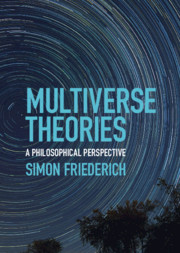Refine search
Actions for selected content:
10 results
ReqGPT: a fine-tuned large language model for generating requirements documents
-
- Journal:
- Proceedings of the Design Society / Volume 5 / August 2025
- Published online by Cambridge University Press:
- 27 August 2025, pp. 2741-2750
-
- Article
-
- You have access
- Open access
- HTML
- Export citation
Utilizing large language models (LLMs) for quantitative reasoning-intensive tasks within the (re)insurance sector
-
- Journal:
- Annals of Actuarial Science , First View
- Published online by Cambridge University Press:
- 12 August 2025, pp. 1-22
-
- Article
-
- You have access
- Open access
- HTML
- Export citation
Automatic identification of role-specific information in product development: a critical review on large language models
-
- Journal:
- Proceedings of the Design Society / Volume 4 / May 2024
- Published online by Cambridge University Press:
- 16 May 2024, pp. 2009-2018
-
- Article
-
- You have access
- Open access
- Export citation
12 - The Standard Model and Beyond
-
- Book:
- Fundamentals of Particle Physics
- Published online:
- 31 August 2023
- Print publication:
- 14 September 2023, pp 432-459
-
- Chapter
- Export citation
Emerging trends: General fine-tuning (gft)
-
- Journal:
- Natural Language Engineering / Volume 28 / Issue 4 / July 2022
- Published online by Cambridge University Press:
- 23 May 2022, pp. 519-535
-
- Article
-
- You have access
- Open access
- HTML
- Export citation
Emerging trends: A gentle introduction to fine-tuning
-
- Journal:
- Natural Language Engineering / Volume 27 / Issue 6 / November 2021
- Published online by Cambridge University Press:
- 26 October 2021, pp. 763-778
-
- Article
-
- You have access
- Open access
- HTML
- Export citation

Multiverse Theories
- A Philosophical Perspective
-
- Published online:
- 07 January 2021
- Print publication:
- 28 January 2021
Chapter 4 - Cosmic Outlooks
-
- Book:
- Virtue and Meaning
- Published online:
- 09 January 2020
- Print publication:
- 30 January 2020, pp 115-149
-
- Chapter
- Export citation

The Design Argument
-
- Published online:
- 07 December 2018
- Print publication:
- 29 November 2018
-
- Element
- Export citation
How bio-friendly is the universe?
-
- Journal:
- International Journal of Astrobiology / Volume 2 / Issue 2 / April 2003
- Published online by Cambridge University Press:
- 11 November 2003, pp. 115-120
-
- Article
- Export citation
